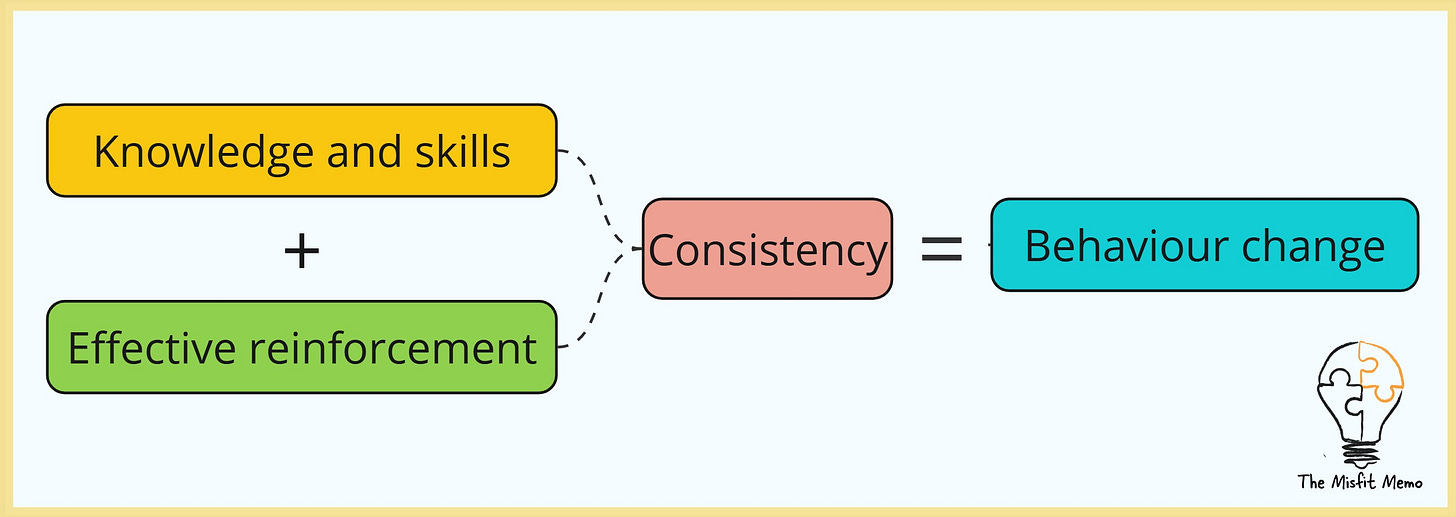"When children respect parental authority, they feel more secure because they know someone is guiding them wisely."
- Dr. Kevin Leman
Growing up, “because I said so, that’s why” was the explicit signal that the current round of negotiations was over. This was the order of things. Adults were in charge, and it was in your best interest to respect that. Nowadays, many household tables are topped by tyrannical toddlers, dictating the terms and conditions of the family outings and device usage, because parents typically prefer to avoid the tiny tantrums at all costs.
How did we get here?
Children raised in an environment surrounded by aggressive behaviour, corporal punishment and a constant feeling of inadequacy can suffer from negative long-term consequences. As a result, society outlawed and encouraged against certain practices. However, the pendulum has swung so far the other way that parents are now publicly condemned for risking a child’s short-term emotional well-being lest it cause some sort of life-long trauma. In addition, algorithms seem to love fluffy, compassionate, yet subtly judgmental and unrealistic, highlight reels that glorify a ‘softly-softly, pretty please don’t punch mummy in the head’ approach. This has contributed significantly to increasingly dependent, ill-disciplined children who lack resilience and struggle to regulate their emotions.
Authoritarian Vs authoritative styles
Authoritarian parenting: a strict, rule-focused style where obedience is expected without question, often at the expense of warmth and open communication.
Authoritative parenting: an approach that combines high expectations of discipline, respect and independence with open communication, negotiation and mutual understandings.
The human condition doesn’t like top down authoritarianism at any level of society. It limits personal freedom and autonomy, which, when it comes to raising children, removes opportunities for them to develop key life skills like the art of negotiation, knowing which battles to pick and independent problem-solving. Therefore, it’s not surprising that years of rigid demands and lack of autonomy builds resentment, which can manifest as deep-rooted insecurities or rebellious insubordinate teenagers.
Authoritative styles, on the other hand, whilst keeping firm expectations and boundaries, value the idea that an empathetic, open conversation between children and adults is more effective at building trust, respect and emotional resilience. Giving children the opportunity to table their opinion on certain matters, and gain the rationale behind an adult’s decisions, develops qualities valuable across many social scenarios. It encourages children to formulate coherent arguments, consider opposing opinions, and deal with a less than desirable outcome. A diplomatic household gives children that sense of self-determination and free will whilst learning to cooperate with, and ultimately respect, the inevitability of hierarchies.
Implementing authoritative practices
"Children learn respect for authority when parents set an example of firmness, fairness, and respect themselves."
-Ann Landers
Ultimately, children yearn to be mentored by competent adults so it’s on us to be effective leaders for these little humans. Respect for authority is built through consistent and fair expectations whilst supporting the development of the skills necessary to succeed in social scenarios. Thankfully, this can be done without kowtowing to a tantrum or being the tyrannical dictator.
Set explicit expectations: assume children don’t know how to conduct themselves. Take the time to regularly review expectations for specific environments or teach them if they aren’t sure.
Explain: communicate the logic and reasoning behind certain behaviours and ways to interact in the world.
Engage: allow the opportunity for an open dialogue and give an opportunity to negotiate appropriately.
Model: children learn the most through observation. How we engage with the world will have a direct influence on how children around us do.
Encourage independence: give children responsibilities and freedom to make choices. Allow them to solve their own problems, make mistakes and learn life lessons in order to build self-confidence and resilience.
Reflections: when the inevitable public meltdown occurs, reflect on the situation at a later point when everyone is in the right frame of mind.
Visualise the expectations: widgit symbols, basic sign language and written reminders reduce the opportunity for children to conveniently forget what is expected.
Reinforcement: make sure the benefits of behaving appropriately and the consequences for not are clear. Just because it is obvious to us, doesn’t mean it is obvious to children.
Consistency: it’s easy to forget positive reinforcement and be talked/embarrassed out of dispensing negative consequences. Make sure everyone, including other adults, are on the same page.






You've touched on a fascinating shift in parenting culture. It seems like, in trying to move away from harsh discipline and its potential harms, we’ve ended up with a model that can feel, at times, like it’s run by the smallest members of the household. The move toward gentler parenting—while well-intentioned—sometimes prioritizes immediate peace over setting firm boundaries that help kids build resilience and self-regulation.
Perhaps finding a middle ground is key, where compassion doesn’t mean giving in, and boundaries don’t mean bulldozing kids’ feelings. Children need empathy, but they also need structure and the opportunity to experience and work through frustration. If we blend these approaches, we could help them grow into adults who can handle both adversity and kindness. Maybe it’s less about “softly-softly” and more about a thoughtful, balanced approach that helps kids build real-world skills like patience, responsibility, and respect.
I absolutely agree. This article is chock full of reasoned wisdom that strikes a measured and healthy balance between the two failed parenting strategies of authoritarian punishment and squishy enablement.